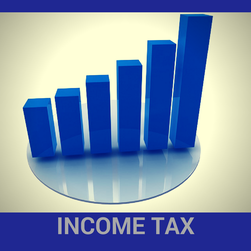 Author: Cathie Webb, Director, South African Payroll Association We encourage all employers, employees and payroll departments to prepare themselves for an income tax increase that will likely be announced during Finance Minister Pravin Gordhan's upcoming National Budget Speech. Too much tax South Africans already contribute multiple taxes. Therefore, the government is faced with a difficult decision - how to bring in much-needed revenues to run the country effectively without overburdening the man or woman in the street. In tax theory, there’s a level at which taxation can become so high that the average person stops aspiring to a better lifestyle and becomes less economically active. At this point, working any harder seems fruitless. In light of this, the government strives to meet its budgetary requirements without crossing that threshold. However, if people are still left with less disposable income, this can lead to a lower aggregate demand for goods, which puts deflationary pressure on the economy. The result is loss of business profits, lower output and therefore fewer jobs. Limited options However, government’s options are limited. In his 2016 budget speech, Minister Gordhan clearly indicated that R28 billion would have to be raised over the next two years, consisting of R13 billion in 2017 and R15 billion in 2018. There are only three main paths to acquiring the funds, namely by increasing value-added tax (VAT), company tax and/or personal income tax. Because a VAT increase would place a uniform burden on all members of the population, the greatest impact would be felt by the poor. Therefore, it’s less desirable to increase VAT, as opposed to company or personal tax. Despite this, it should be noted that South Africans enjoy the lowest VAT rate in the world, so an increase would not be unwarranted and some even expect it. However, taking into account all taxes levied on South Africans, it’s quite possible the country has one of the highest taxations globally with fewer benefits than nations paying more VAT. It would appear then that an increase in personal and company tax is highly likely, with a lower probability of an increase in VAT. Commentators point to several other taxes the government may levy, including proposed increases on consumption goods, such as alcohol, tobacco, soft drinks, fuel, as well as the much publicised sugar tax. However, these will not be enough to cover the deficit. Bracket creep Certain income ranges may also be exposed to bracket creep. This happens when workers receive their annual pay increase to offset inflation. They haven’t gained extra purchasing power but, from a tax perspective, they appear to be earning more and in some cases, may enter a higher tax bracket. The effect could be that the higher taxation reduces their take-home pay below previous earnings. Historically, tax brackets have been adjusted to match inflation-based pay increases. In the years ending February 2016 and February 2017, the top 2 tax tiers remained essentially unchanged. But the marginal rate in these brackets increased from 40% to 41%. This year, government might leave selected tax brackets as is, or raise them at a lower rate than inflation-adjusted increases. If this happens, it will have an added effect to higher income tax and employees should be prepared to adapt their lifestyles accordingly. Payroll preparation If an income tax increase proves true, payroll departments should move as swiftly as possible to update their tax tables, and to ensure that the staff in the organisation are aware of the changes, and how it will impact them. It’s not unusual for larger organisations to take longer because of their complexity and size. But delaying implementation until April or May could mean that employees will pay more tax due to accumulated PAYE from March. Seeing a lower take-home figure on one’s payslip is never appreciated. Looking to the future Although South Africans have no reason to celebrate, it’s important to realise that our current economy is more the result of the global financial crisis than our own doing. We’re a great nation with the highest gross per capita income (GDP) in Africa and we have a lot going for us. We can regain our momentum by rolling up our sleeves, pulling together and working hard together to improve our nation. ENDS MEDIA CONTACT: Idéle Prinsloo, 082 573 9219, [email protected], www.atthatpoint.co.za For more information on SAPA please visit: Website: http://www.sapayroll.co.za/ Twitter: @SAPayroll LinkedIn: The South African Payroll Associatio
0 Comments
|
Welcome to the South African Payroll Association newsroom.
Archives
July 2020
Categories
All
|

 RSS Feed
RSS Feed